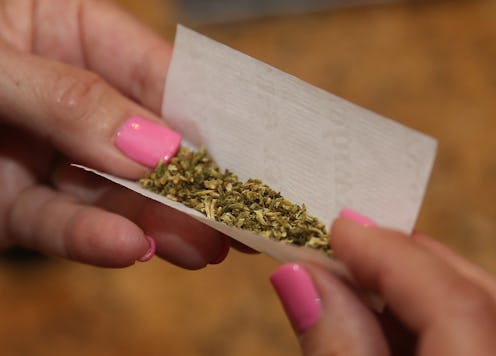News
Mary Jane Is Bringing In Big Money For Some States
Advocates for the legalization of recreational marijuana have been seeing a fair amount of progress. In January 2014, Colorado became the most recent state in the U.S. to legalize recreational marijuana, and it seems that other states will soon join the now four states that have legalized non-medical uses of weed (Alaska, Oregon, and Washington are the other three, plus Washington D.C.). Advocates have long spoken about the benefits that legalized marijuana could have for the economy, and it looks like they could be very right.
It isn't just grassroots (no pun intended) advocates that tout the upsides of legalized weed, politicians are increasingly on board, as well (not least of all presidential candidate Rand Paul, who has been very outspoken about marijuana legalization). Right now, many politicians are espousing pro-legalization stances based on the idea that it doesn't make sense to further crowd U.S. prisons with non-violent marijuana offenders. Earlier in 2015, even Rick Perry updated his opinion on marijuana, stating that he wanted Texas to move "toward a decriminalization and [keep] people from going to prison and destroying their lives."
These reasons are certainly valid enough, but I wonder if these new infographics from Digit would get key politicians (and all the rest of us) thinking more heavily about the economic aspects of legalized recreational weed.
This first graphic lays out where U.S. states currently stand on marijuana legalization. Right now we can see that the majority of states do not have any legalization of weed (including for medical purposes). What's interesting is that given all the stir that marijuana politics has been creating for decades in the U.S., the percentage of our GDP dedicated to weed (that's both legal and illegal weed) ranks 14th in the world. With so much interest in weed, and huge parts of myriad subcultures dedicated to weed, it's a little surprising to see the U.S. ranked well below Latvia, who comes in at number one.
A statistic that is very clear is that Americans are increasingly in favor of legalizing marijuana:
The percentage of Americans agreeing that marijuana should be legal has jumped 41 points since 1969, with 53 percent of Americans now believing that marijuana use should be legalized. While this isn't a huge majority, the pattern has definitely been trending steadily up since the early '90s, with a significant jump between 2007 and 2014.
Digit also breaks down the financial rewards from taxing weed sales where it's currently legal in the U.S.
Forty-four million dollars across two only two states (Washington and Colorado) in only one year is certainly nothing to scoff at. The infographic notes that it's impossible to estimate what sort of tax profits will be reaped in Alaska, Oregon, and Washington D.C., but it's undeniable that the figures we currently have are pretty impressive.
What's further interesting about the amount of tax money being raked in is what the money from weed tax funds. In Washington State, the tax money goes toward the state's Basic Plan Health Trust Account, substance abuse prevention programs, and marijuana education. In Colorado, the new tax money is going to improvements in school building infrastructure. Health care and education seem to always be in need of additional funds, and weed tax is a creative way to direct money in those directions.
Whether or not these tax programs and economic statistics are enough to sway opinions on Capitol Hill remains to be seen, but my guess is that we will be hearing a lot more about the possibility of legalizing marijuana as the 2016 presidential campaigns continue to ramp up.
Images: Digit
